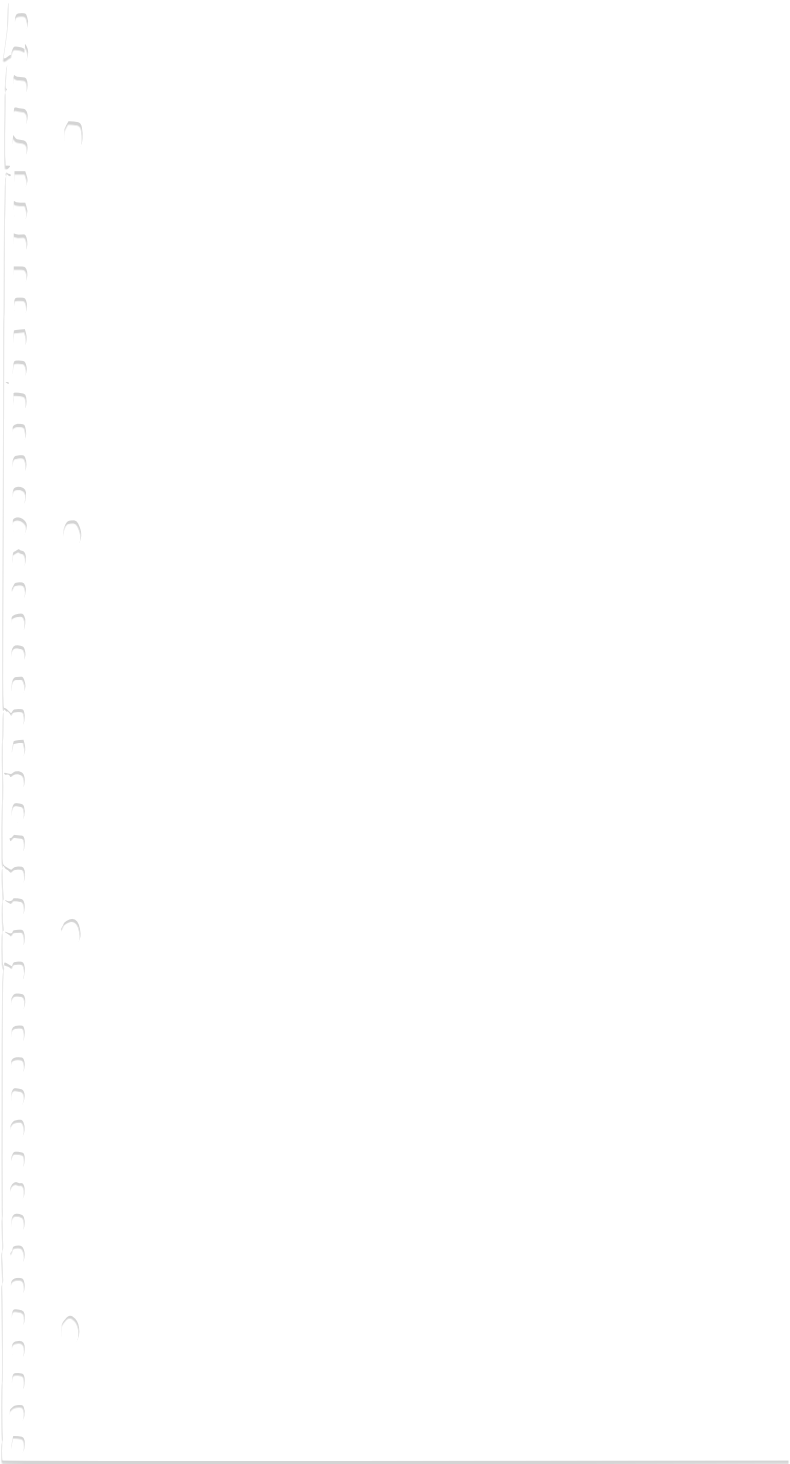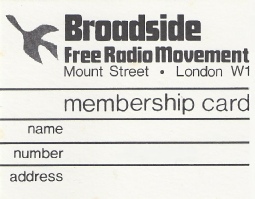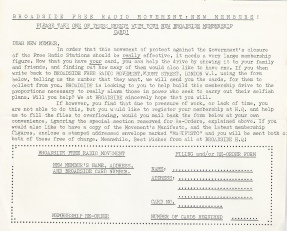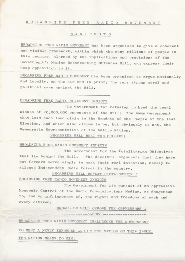© 2014-




Supporters’ Groups
Broadside Free Radio Movement
The Broadside Free Radio Movement was formed by Peter Philipson, a Cambridge Un iversity student, in April 1967, recruiting initially from students at Oxford and Cambridge Universities.
iversity student, in April 1967, recruiting initially from students at Oxford and Cambridge Universities.
In June 1967 the headquarters of the organisation was moved to London and, following publicity on Radio Caroline, the organisation started to recruit members on a national basis.
At the same time a statement of the Broadside Free Radio Movement’s aims was published:
"Broadside Free Rad io Movement" is an independent movement, run by Peter Phillipson, objecting to the "Marine etc, Broadcasting, (Offences) Bill, which prohibits British firms placing advertising copy with offshore radio stations, and British subjects from working on them, with the intention of forcing them to close down. In order to do this, the Act incorporates the use of methods which are completely alien to the age-
io Movement" is an independent movement, run by Peter Phillipson, objecting to the "Marine etc, Broadcasting, (Offences) Bill, which prohibits British firms placing advertising copy with offshore radio stations, and British subjects from working on them, with the intention of forcing them to close down. In order to do this, the Act incorporates the use of methods which are completely alien to the age-
"We intend to establish a network of "Action Centres," each responsible for voicing agitation in their area. This will be run by unpaid volunteers, who will hold meetings, canvass, distribute literature, and attempt to persuade people to withhold their support from Parliamentary candidates and MP's who back the "Marine etc. Broadcasting Offences Act". In this way we intend to stir up public feeling to such an extent that the "Act" will fall in its objective."
extent that the "Act" will fall in its objective."
The Broadside Free Radio Movement also sent out a leaflet to its members setting out four objectives:
• To give a coherent and visible organisation to the many millions of people in this country who are directly opposed to the Government's Marine Broadcasting Offence Bill.
• To give to these people a framework within which their protest can take on a more unitary, and united form, and thus, it is hoped, a more effective one.
• To expose what the movement considers to be the completely inadequate arguments that the Government has put forward to account for the action that they have taken, and are still in the process of taking against the pioneers of independent broadcasting in this country.
• To support the whole concept of a free and completely independent system of sound broadcasting here, both on a national and a local scale, and thus by implication, to oppose any attempt to return to the air networks of this country to a monopoly control.
By July 1967 the Movement claimed a membership of 80,000, but by October (following the implementation of the Marine etc Broadcasting Offences Act on 15th August, and the subsequent closure of all but two of the offshore stations) Broadside Free Radio Movement collapsed totally with financial debts of £500/£600.
In November 1967 the Free Radio Association took over the outstanding debts and combined Broadside's membership with its own creating an organisation with a claimed membership of more than 100,000.

Broadside Manifesto
Click image to enlarge



A selection of stickers produced by Broadside Free Radio Movement/FRA





Floor 2
Back to




The ‘welcome’ letter sent to new Broadside members
Click image to enlarge
Broadside Free Radio Movement announcement
